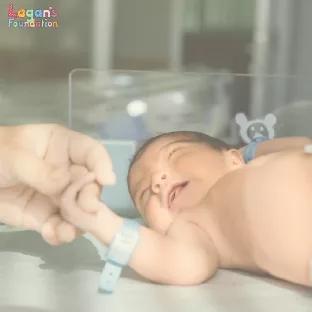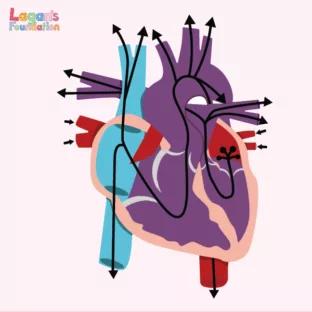
What are the Symptoms of Atrial Septal Defects in Children?
Atrial Septal Defects in Children
An Atrial Septal Defect is a type of congenital heart defect in which there is an unusual opening inside the heart.
Many cases of Atrial Septal Defects are diagnosed and treated successfully, with little to no complications.
What are Atrial Septal Defects (ASD)?
Atrial Septal Defects, or ASD, are birth defects that cause a hole in the wall (septum) that divides the upper chambers of the heart. An Atrial Septal Defect is a type of congenital heart defect, which means it is present at birth.
A hole can vary in size, and it can sometimes close on its own; otherwise, surgery may be required.
Do Atrial Septal Defects present differently in babies and children?
Many babies and children who suffer from ASD will show no symptoms, and will appear relatively healthy.
Symptoms in children may be easier to spot than in babies since they are much more active, and are able to voice if they are experiencing any pain or discomfort.
Symptoms of Atrial Septal Defects in babies
Although it can be difficult to tell straight away if a baby has an Atrial Septal Defect, some signs and symptoms include:
- Frequent respiratory or lung infections
- Difficulty breathing
- Swollen legs, feet or stomach
- Irregular heartbeats
- Tiring when feeding
Symptoms of Atrial Septal Defects in Children
Again, like babies, if your child seems healthy and has no symptoms, you may not realise they could be suffering from an Atrial Septal Defect. However, there are some symptoms which shouldn’t be ignored, including:
- Growing slowly
- Shortness of breath, particularly when exercising
- Tiredness
- Regular respiratory infections
- Abnormal heart rhythms
- Poor appetite
How do Atrial Septal Defects affect child development?
An Atrial Septal Defect that isn’t treated early on can lead to health problems as children grow, and this includes abnormal heart rhythms and how well the heart pumps blood around the body.
As children with Atrial Septal Defects get older, they might be at an increased risk of a stroke. This is because a blood clot could form, pass through the hole in the septum and travel to the brain.
Pulmonary hypertension, which is high blood pressure in the lungs, may also occur over time as children grow up.
Lagan’s Foundation trains their staff to provide a very high standard of care to families in the North West who have children with Complex Health Needs, specialising in Congenital Heart Defects and Feeding Issues.
As Atrial Septal Defects are a common type of Heart Condition, the charity makes sure that during mandatory training they go through the defects in depth, to make sure all staff are equipped to help the children that live with ASD.

At what age are Atrial Septal Defects usually diagnosed?
An Atrial Septal Defect is usually diagnosed during pregnancy or after the baby is born. However, sometimes it may not be diagnosed until adolescence or adulthood.
How are Atrial Septal Defects diagnosed in a child?
Doctors will typically listen for a heart murmur, which would suggest there’s a hole in the heart.
Tests that are then carried out to help diagnose an Atrial Septal Defect include:
- Echocardiogram: This is the most commonly used test for an Atrial Septal Defect. Sound waves are used to create images of the heart in motion and it shows how well the blood is moving through the heart.
- Chest X-ray: An x-ray will show the condition of the heart and lungs.
- Electrocardiogram (ECG or EKG): This is a quick and painless test that records the electrical activity of the heart and helps to detect irregular heartbeats.
- Cardiac magnetic resonance imaging (MRI) scan: An MRI uses magnetic fields and radio waves to create detailed images of the heart.
When to see a doctor if you suspect ASD in your child
If you suspect your child has been presenting the symptoms as previously discussed, you should contact their healthcare provider.
Be sure to write down any new or continuing symptoms that may be occurring, this way your child’s doctor can help to quickly diagnose if your child is suffering from an Atrial Septal Defect.
You may also want to write down or take with you any medication or supplements your child takes, including what doses and how regularly they’re taken.

![Understanding Total Anomalous Pulmonary Venous Return [TAPVR]](/wp-content/uploads/2025/04/Understanding-Total-Anomalous-Pulmonary-Venous-Return-FI-312x312-c-default.jpg)


